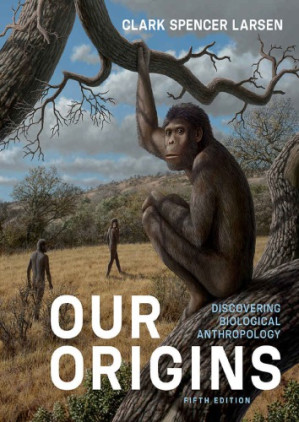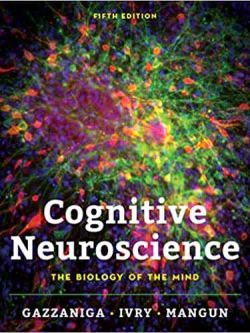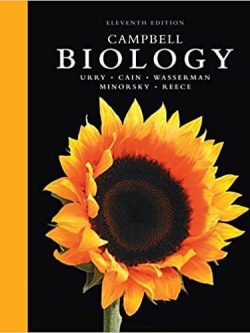Specifications
| book-author | Clark Spencer Larsen |
|---|---|
| file-type | |
| isbn10 | 0393697207 |
| isbn13 | 9780393697209 |
| language | English |
| publisher | W. W. Norton – Company; |
Book Description
“Our Origins: Discovering Biological Anthropology” by Clark Spencer Larsen is a comprehensive and engaging textbook that explores the field of biological anthropology, focusing on the study of human evolution, variation, and adaptation.
- Introduction to Biological Anthropology: Larsen provides an overview of the field of biological anthropology, including its history, methods, and key concepts. He introduces students to the interdisciplinary nature of the discipline, which combines aspects of biology, anthropology, archaeology, and other fields.
- Evolutionary Theory: The book covers the principles of evolutionary theory and their application to the study of human evolution. Larsen discusses concepts such as natural selection, genetic drift, adaptation, and speciation, and how they shape human biology and behavior.
- Primate Evolution: Larsen explores the evolutionary history of primates, including the fossil record, anatomical adaptations, and behavioral traits of living and extinct primate species. He discusses the diversity of primates and their significance for understanding human evolution.
- Human Evolution: The textbook examines the evolutionary history of the human lineage, from the earliest hominins to modern humans. Larsen discusses key fossil discoveries, such as Ardipithecus, Australopithecus, Paranthropus, and Homo species, and their implications for understanding human origins.
- Genetics and Variation: Larsen covers the principles of genetics and human variation, including patterns of genetic inheritance, population genetics, and the role of genetic variation in human evolution and adaptation. He discusses genetic markers, genome sequencing, and the genetic basis of human traits.
- Biological Adaptations: The book explores human biological adaptations to diverse environments and lifestyles, including adaptations related to climate, diet, disease, and behavior. Larsen discusses the biological basis of human diversity and the interactions between genes and the environment.
- Bioarchaeology and Forensic Anthropology: Larsen examines the application of biological anthropology methods to archaeological and forensic contexts. He discusses the analysis of human skeletal remains, including methods for estimating age, sex, stature, and population affinity.
- Contemporary Issues: The textbook addresses contemporary issues in biological anthropology, such as the impact of globalization, environmental change, and human migration on human biology and health. Larsen discusses the relevance of biological anthropology to understanding and addressing current challenges facing humanity.
Overall, “Our Origins: Discovering Biological Anthropology” provides students with a comprehensive and up-to-date overview of the field, incorporating the latest research findings and discoveries. With its accessible writing style, engaging illustrations, and thought-provoking discussion questions, this textbook is suitable for students studying biological anthropology at the undergraduate level.













Reviews
There are no reviews yet.